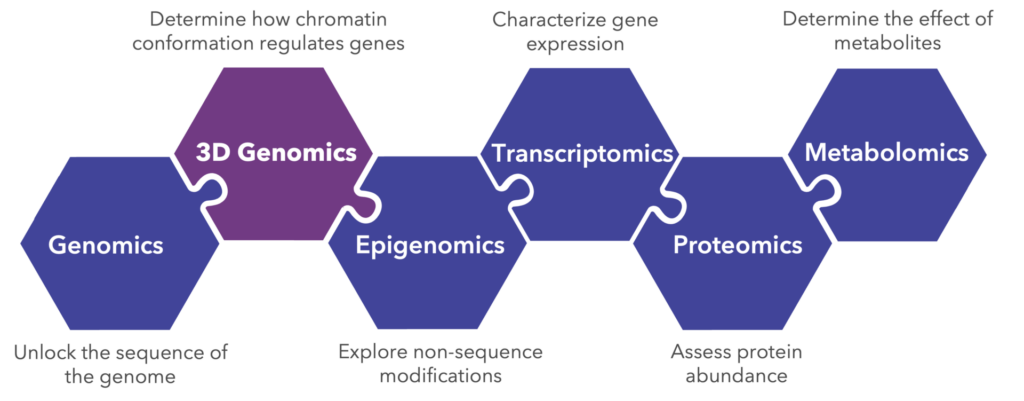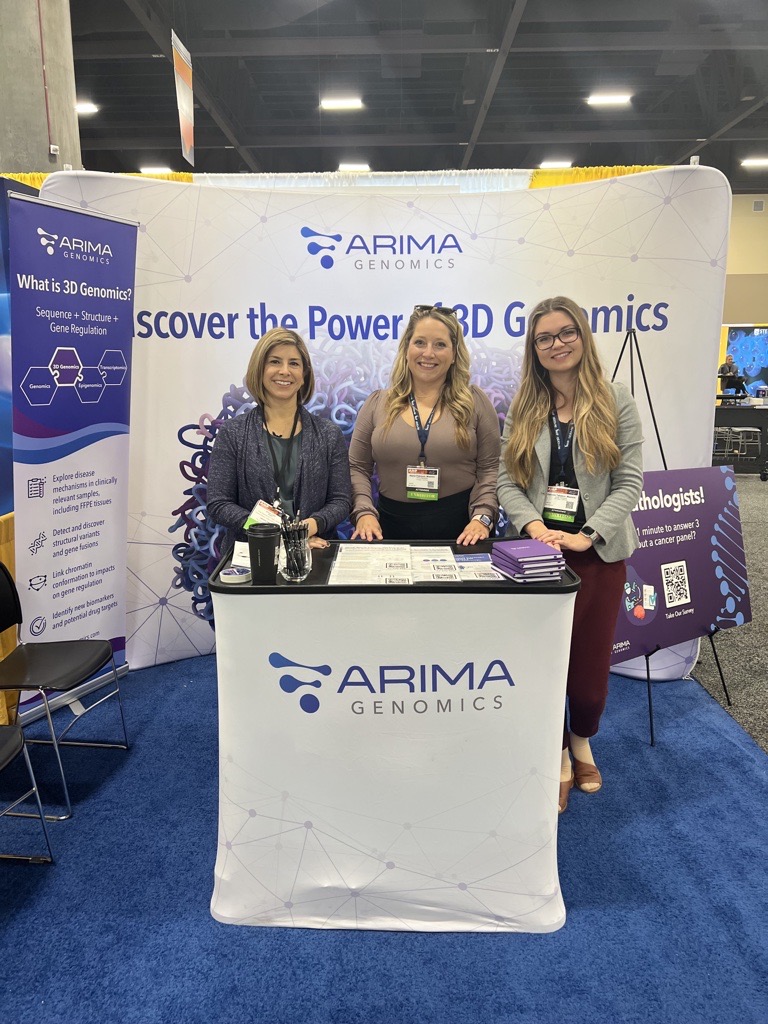November 15, 2022
Share
The Arima team was pleased to attend the Association for Molecular Pathology (AMP) 2022 Annual Meeting & Expo earlier this month. The conference was packed with cutting-edge technology and developments in molecular testing and diagnostics. This was our first time as a company sharing our technology with the AMP community, and we are grateful for the warm reception.
One of the key themes we observed throughout the conference was the growing awareness of the essential role that multi-omic approaches play in advancing precision medicine. And we could not agree more. Our solutions are based on a relatively new “omic,” 3D genomics, which can help bridge the gap in understanding how genes are differentially regulated and identify structural variants and gene fusions missed by other technologies.

Exhibit Highlights: Elucidating the Genome to Reveal Fusions Invisible to Other Technologies
As first-time exhibitors at AMP, we were ready to answer many questions about our technology. But the question we got asked the most is, “What is 3D Genomics, and how can it help my patients?”
Simple: 3D genomics reveals the sequence, structure, and regulatory landscape of the genome. In doing so, it uncovers chromosome fusions that are invisible to many DNA and RNA-Seq panels. These include fusions between two genes, as well as proximity fusions — those outside one or more genes.
Corporate Workshop: A New Frontier for Discovery
In this session, Anthony Schmitt, PhD, SVP of Science at Arima Genomics, and Matija Snuderl, MD, of NYU Langone Health and School of Medicine, shared the results of their ongoing collaboration. Specifically, they shared how they used a 3D genomics-based approach to consistently detect gene fusions and structural variants of clinical significance in driver-negative clinical samples. This approach was also able to identify genetic drivers of disease in formalin-fixed, paraffin-embedded (FFPE) tumor samples for which other technologies, such as RNA-seq, are unsuccessful.
Watch a recording of Dr. Anthony Schimitt’s presentation from AMP 2022
Findings from this collaboration were also presented in a poster (ST065) entitled Detecting Actionable Structural Variants with 3D Genomics in Solid Tumors with Unknown Drivers from Formalin-Fixed, Paraffin-Embedded Samples, presented by Kristyn Galbraith, MD, on behalf of a team of scientists and clinicians from NYU Langone Health, Arima Genomics, and Memorial Sloan Kettering Cancer Center.
Connecting with many clinicians and scientists at the forefront of precision health was inspirational. We look forward to many more years of attending and participating in this outstanding conference.
Learn more about Arima technology and contact us to explore how you can get started with 3D genomics to understand human disease.




